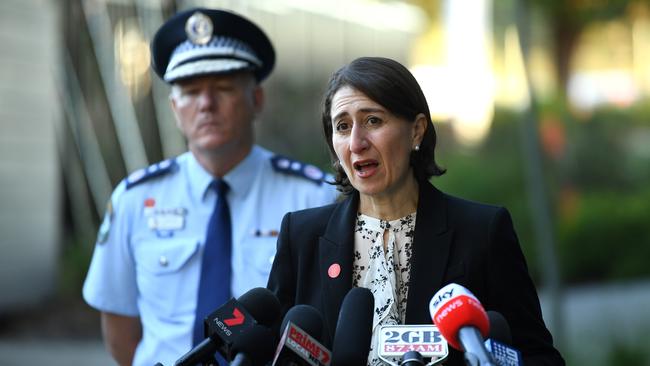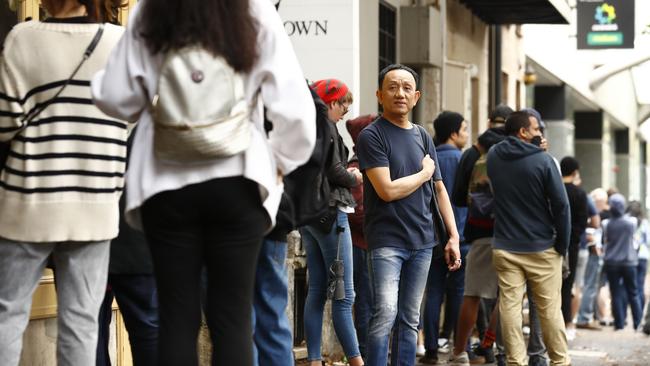Only 16 reasons will exempt you from $11k COVID-19 fine
Hefty fines, COVID-19 self-isolation and working from home are preventing many of us from leaving the house in recent days. But if you need to head outside and grab some fresh air these are the 16 reasons that won’t land you in trouble with police.
NSW
Don't miss out on the headlines from NSW. Followed categories will be added to My News.
NSW residents face massive fines and even jail time if they break laws restricting non-essential travel and all gatherings to two people.
From Tuesday, people who leave their home without a valid reason — for work or study, buying food or other essentials, seeking medical care or exercise — they are liable for a fine of up to $11,000 and a maximum six months in jail.
Health Minister Brad Hazzard signed the order under the Public Health Act at 10.20pm on Monday, just hours before it came into effect at midnight.
Individuals can also be fined for gathering indoors or outdoors in a group of more than two people, not including households or for essential work or study.

Anyone who breached the order would be fined an additional $5,500 for every day they continued to break the law.
Corporations are liable for a fine of up to $55,000 and a further $27,500 for every day after that.
The federal government advice is that families — such as separated partners with children or couples who do not live together — are exempted from the two-person limit, but the NSW order does not specifically exclude these groupings from the gathering restrictions.
Mr Hazzard tweeted a picture of the order after signing it on Tuesday.
“10.20pm I just signed new restrictions on leaving residences. Public Health (Covid-19 Restrictions on Gathering and Movement) Order 2020,” he said.
“Message — Stay home unless you need to go out for essential reasons such as work, study, obtaining food (or) medical supplies.”

These are the only reasonable excuses for being out
1. Obtaining food or goods or services for personal needs of the household (including pets) and for vulnerable persons.
2. Travelling for the purposes of work if the person cannot work from home.
3. Travelling for the purpose of attending childcare (including picking up or dropping another person at childcare).
4. Travelling to attend school or an educational institutions if the person cannot learn from home.
5. Exercising.
6. Obtaining medical care or supplies or health supplies or fulfilling carer’s responsibilities.
7. Attending a wedding or a funeral (as per new ministerial guidelines).
8. Moving to a new place of residence (including a business relocating) or between different places of residence or inspecting a potential new residence.

9. Providing care and assistance to a vulnerable person or emergency assistance.
10. Donating blood.
11. Undertaking any legal obligation.
12. Accessing public services (whether provided by government, private provider or non-government organisation) including social services, employment services, domestic violence services, mental health services, or services provided to victims such as victims of crime.
13. For children who do not live in the same household as their parents, siblings, or one of their parents or siblings, to continue access/contact between parents, siblings and children.
14. For a person who is a priest, minister or member of a religious order going to a place of worship or to provide pastoral care.
15. Avoiding injury or illness or to escape risk or harm
16. For emergencies or compassionate reasons.

